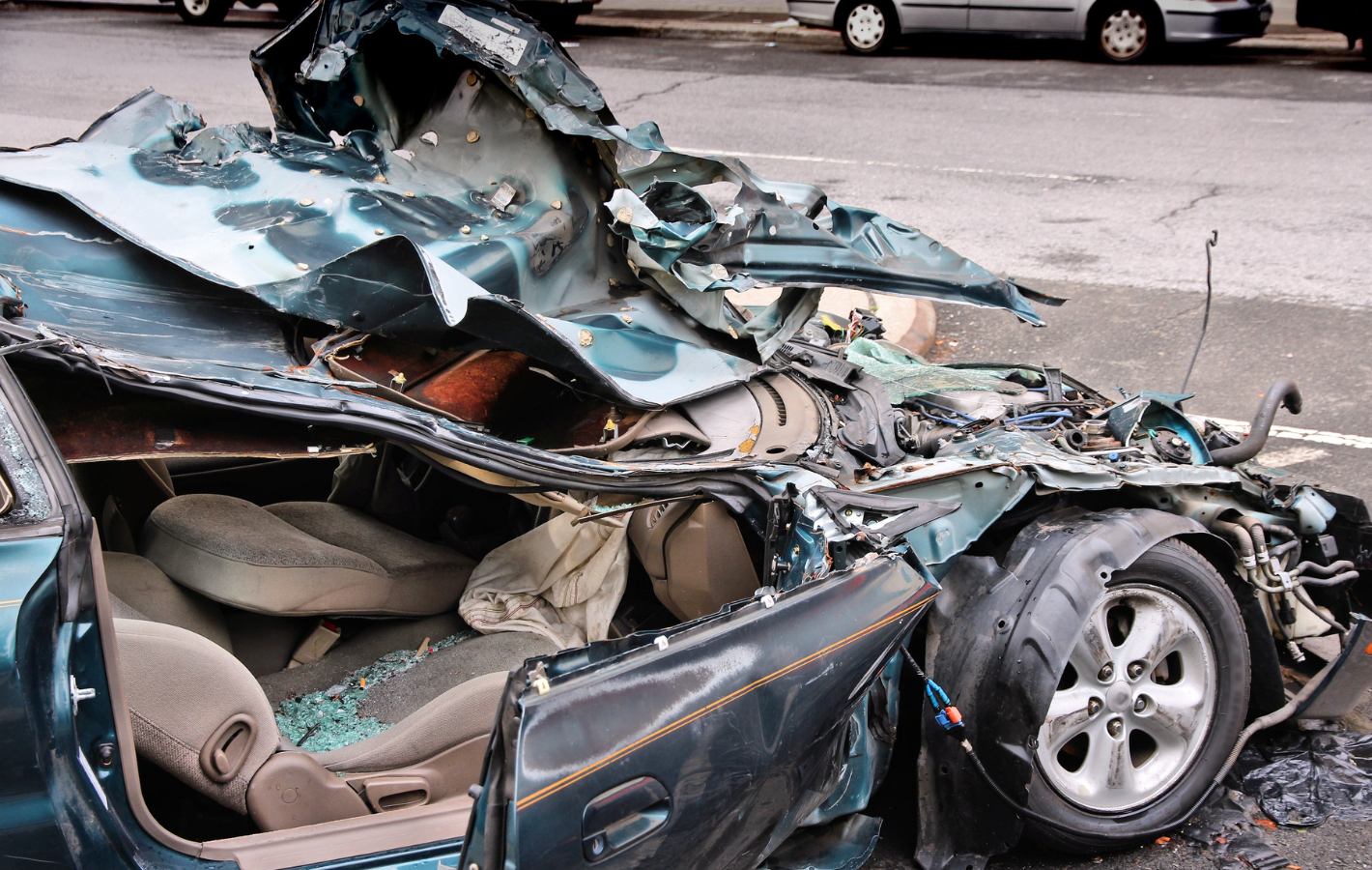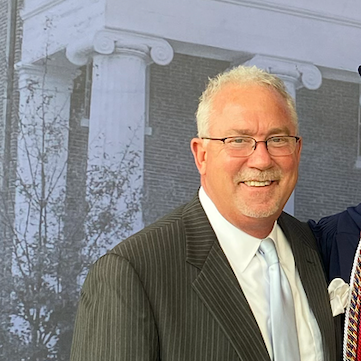Experience Matters, Trust Wood & Carlton

When you're injured, whether at work or in an accident outside of work, it's crucial to understand your legal options for seeking compensation. Two of the most common legal avenues for obtaining compensation after an injury are workers' compensation claims and personal injury claims. While these two types of claims may seem similar, they operate under different legal frameworks, have distinct requirements, and offer different types of compensation. This blog will explore the key differences between workers' compensation and personal injury claims, helping you understand which option is appropriate for your situation and how to navigate the process to secure the compensation you deserve. What Is Workers' Compensation? Workers' compensation is a no-fault insurance system designed to provide financial and medical benefits to employees who are injured or become ill due to their job. In Mississippi, as in most states, employers are required to carry workers' compensation insurance to cover their employees in the event of a work-related injury or illness. Key aspects of workers' compensation include: No-Fault System: Workers' compensation is a no-fault system, meaning that employees do not need to prove that their employer was negligent or at fault for the injury. As long as the injury or illness occurred during the course of employment, the employee is generally entitled to benefits. Benefits Offered: Workers' compensation benefits typically include coverage for medical expenses, wage replacement (temporary or permanent disability benefits), and vocational rehabilitation if necessary. In the event of a work-related death, workers' compensation also provides death benefits to the deceased employee's dependents. Limited Compensation: While workers' compensation covers medical bills and a portion of lost wages, it does not provide compensation for pain and suffering or punitive damages. The focus is on providing basic support for the injured worker rather than fully compensating for all losses. Exclusive Remedy: In most cases, workers' compensation is the exclusive remedy for work-related injuries. This means that employees who accept workers' compensation benefits generally cannot sue their employer for additional compensation through a personal injury lawsuit. What Is a Personal Injury Claim? A personal injury claim is a legal action taken by an individual who has been injured due to the negligence, recklessness, or intentional actions of another party. Personal injury claims can arise from various situations, including car accidents, slip and fall accidents, medical malpractice, defective products, and more. Key aspects of personal injury claims include: Fault-Based System: Unlike workers' compensation, personal injury claims operate under a fault-based system. The injured party (plaintiff) must prove that the other party (defendant) was negligent or at fault for the injury. This typically involves demonstrating that the defendant breached a duty of care, causing the injury. Compensation Offered: Personal injury claims can provide compensation for a wide range of damages, including medical expenses, lost wages, pain and suffering, emotional distress, loss of enjoyment of life, and punitive damages (in cases of egregious conduct). The goal is to fully compensate the injured party for all losses resulting from the injury. Potential for Higher Awards: Because personal injury claims allow for compensation for pain and suffering and other non-economic damages, they often result in higher awards compared to workers' compensation claims. However, the outcome depends on the strength of the case and the ability to prove fault and damages. No Employment Relationship Required: Personal injury claims can be filed against any party whose negligence caused the injury, not just an employer. This could include other drivers, property owners, product manufacturers, medical professionals, and more. Key Differences Between Workers' Compensation and Personal Injury Claims Understanding the differences between workers' compensation and personal injury claims is essential for determining which type of claim applies to your situation and how to proceed. Here are some of the key differences: Basis of the Claim: Workers' Compensation: No need to prove fault or negligence; the injury must simply be work-related. Personal Injury: The plaintiff must prove that the defendant’s negligence or intentional actions caused the injury. Type of Compensation: Workers' Compensation: Covers medical expenses, a portion of lost wages, and rehabilitation; does not cover pain and suffering or punitive damages. Personal Injury: Can include compensation for medical expenses, lost wages, pain and suffering, emotional distress, and punitive damages. Eligibility: Workers' Compensation: Available to employees who are injured or become ill due to their job. Personal Injury: Available to anyone injured due to the negligence of another party, regardless of the employment relationship. Legal Process: Workers' Compensation: Typically involves filing a claim with the employer’s workers' compensation insurance carrier; disputes may be resolved through administrative hearings. Personal Injury: Involves filing a lawsuit in civil court against the at-fault party; the case may go to trial or be settled out of court. Employer Immunity: Workers' Compensation: Employers are generally immune from personal injury lawsuits filed by employees if workers' compensation benefits are provided. Personal Injury: No immunity for at-fault parties outside the employment relationship; they can be sued directly for damages. When to File a Workers' Compensation Claim You should file a workers' compensation claim if you are injured or become ill as a direct result of your job duties. Common scenarios that warrant a workers' compensation claim include: On-the-Job Injuries: Injuries that occur while performing your work duties, such as falls, equipment accidents, repetitive stress injuries, and exposure to hazardous substances. Occupational Illnesses: Illnesses that develop due to workplace conditions, such as respiratory diseases from exposure to toxic chemicals or hearing loss from prolonged exposure to loud noise. Work-Related Aggravations: Pre-existing conditions that are aggravated or worsened by your job duties may also qualify for workers' compensation benefits. It’s important to report your injury to your employer as soon as possible and file a workers' compensation claim within the time frame specified by Mississippi law. Failure to do so could result in the denial of your claim. When to File a Personal Injury Claim You should consider filing a personal injury claim if you are injured due to the negligence or intentional actions of another party, and your injury was not related to your employment. Common scenarios that warrant a personal injury claim include: Car Accidents: Injuries sustained in a car accident caused by another driver’s negligence, such as speeding, distracted driving, or driving under the influence. Slip and Fall Accidents: Injuries that occur on someone else’s property due to hazardous conditions, such as wet floors, uneven surfaces, or lack of proper signage. Medical Malpractice: Injuries or illnesses caused by the negligence of a healthcare provider, such as surgical errors, misdiagnosis, or failure to provide appropriate treatment. Defective Products: Injuries caused by a defective or dangerous product, such as faulty machinery, unsafe consumer products, or contaminated food. To succeed in a personal injury claim, you must be able to prove that the other party’s negligence directly caused your injury and that you suffered damages as a result. Can You File Both a Workers' Compensation and Personal Injury Claim? In some cases, it may be possible to file both a workers' compensation claim and a personal injury claim. This typically occurs when a third party (someone other than your employer or a co-worker) is responsible for your injury. For example: Workplace Vehicle Accidents: If you are injured in a car accident while driving for work and the accident was caused by another driver, you may be able to file a workers' compensation claim with your employer and a personal injury claim against the at-fault driver. Defective Equipment: If you are injured at work due to defective equipment or machinery, you may be able to file a workers' compensation claim with your employer and a personal injury claim against the equipment manufacturer. In these situations, workers' compensation may cover your medical expenses and a portion of your lost wages, while the personal injury claim could provide additional compensation for pain and suffering, emotional distress, and other damages. Conclusion Understanding the difference between workers' compensation and personal injury claims is essential for navigating the legal process after an injury. Workers' compensation provides a no-fault system for work-related injuries, offering limited benefits but protecting employers from lawsuits. Personal injury claims, on the other hand, allow for broader compensation but require proof of fault. If you’ve been injured and are unsure whether to file a workers' compensation or personal injury claim, the attorneys at Wood & Carlton, P.C. can help. With extensive experience in both areas of law, we can guide you through the process, ensure your rights are protected, and work to secure the compensation you deserve. Contact us today to schedule a consultation and learn more about your legal options.

When you file a workers' compensation claim after a workplace injury, your medical condition and the extent of your disability are critical factors in determining the benefits you receive. While your treating physician’s reports play a significant role in this process, insurance companies often require injured workers to undergo an Independent Medical Examination (IME) to assess the injury from a neutral standpoint. The IME can have a substantial impact on the outcome of your workers' compensation case, making it essential to understand what it involves, how to prepare for it, and what to do if you disagree with the results. This blog will provide an in-depth look at the role of IMEs in workers' compensation cases and offer tips for navigating this important step in the claims process. What Is an Independent Medical Examination (IME)? An Independent Medical Examination (IME) is a medical evaluation conducted by a physician who is not involved in your treatment and is chosen by the workers' compensation insurance company. The purpose of the IME is to provide an unbiased assessment of your injury, your ability to work, and the necessity of further medical treatment. The IME doctor will review your medical records, ask you about your injury and symptoms, and conduct a physical examination. They may also order additional tests or imaging studies if needed. After the examination, the IME doctor will prepare a report that includes their findings and opinions regarding your injury and your capacity to return to work. The results of the IME can influence several aspects of your workers' compensation claim, including: The extent of your disability: The IME report will address whether you are partially or totally disabled and whether your disability is temporary or permanent. Your ability to work: The IME doctor will evaluate whether you can return to your regular job, perform modified duties (light duty), or if you are unable to work at all. The need for further treatment: The IME report will include recommendations for any additional medical treatment, therapy, or rehabilitation that may be necessary. Why Are IMEs Requested? Workers' compensation insurance companies request IMEs for several reasons, often when there is a dispute or question about your medical condition, the extent of your disability, or the treatment you are receiving. Common reasons for requesting an IME include: Clarification of Medical Issues: If there is conflicting information in your medical records or if your treating physician’s reports are unclear, the insurance company may request an IME to obtain a more definitive assessment of your condition. Evaluation of Work Capacity: The insurance company may want to assess your ability to return to work, particularly if your treating physician has placed you on restrictions or determined that you cannot work at all. Determination of Permanent Disability: If you are claiming permanent disability, the IME will help determine the extent of your impairment and whether it meets the criteria for permanent disability benefits. Assessment of Maximum Medical Improvement (MMI): The IME may be requested to determine whether you have reached Maximum Medical Improvement (MMI), which is the point at which your condition has stabilized and is not expected to improve further with additional treatment. How to Prepare for an IME Preparing for your IME is crucial to ensure that the examination accurately reflects your medical condition and the impact of your injury. Here are some tips to help you prepare: Review Your Medical Records: Before the IME, review your medical records so you are familiar with the details of your injury, treatment history, and any previous diagnoses. Being well-informed will help you answer the IME doctor’s questions accurately. Be Honest and Detailed: During the IME, provide honest and detailed answers to the doctor’s questions about your injury, symptoms, and how the injury has affected your ability to work and perform daily activities. Avoid exaggerating your symptoms, as this can undermine your credibility. Describe Your Pain and Limitations: Be specific when describing your pain and limitations. For example, if you have difficulty lifting objects or standing for long periods, explain how these limitations impact your work and daily life. Use examples to illustrate the challenges you face. Bring a List of Medications: Bring a list of any medications you are taking for your injury, including the dosage and frequency. The IME doctor may ask about your current treatment regimen. Arrive Early and Be Polite: Arrive early for your appointment to avoid any added stress. Be polite and cooperative during the examination, even if you feel anxious or frustrated about the process. Take Notes After the Exam: After the IME, take notes on what was discussed during the examination, including any tests performed and the questions asked by the doctor. These notes can be useful if you need to challenge the IME report later. What to Expect During the IME The IME will typically involve a review of your medical history, a discussion of your symptoms and limitations, and a physical examination. Here’s what you can expect during the IME: Review of Medical Records: The IME doctor will review your medical records, including your treatment history, diagnostic tests, and any reports from your treating physician. They may ask you questions about your treatment and the progression of your symptoms. Discussion of Symptoms: The doctor will ask you to describe your symptoms, including the type of pain you experience, its severity, and how it affects your ability to work and carry out daily activities. Be specific and detailed in your responses. Physical Examination: The IME doctor will perform a physical examination to assess your range of motion, strength, and any physical limitations resulting from your injury. They may also check for signs of pain, swelling, or other symptoms related to your condition. Additional Tests: In some cases, the IME doctor may order additional tests, such as X-rays, MRIs, or blood tests, to gather more information about your condition. Questions About Work Capacity: The doctor may ask questions about your ability to perform specific job tasks, such as lifting, bending, or standing. They may also inquire about your ability to perform light duty or modified work. After the IME: Understanding the Report After the IME, the doctor will prepare a report that includes their findings and opinions regarding your injury, work capacity, and the need for further treatment. This report will be sent to the workers' compensation insurance company and may be used to make decisions about your benefits. It’s important to understand that the IME report can significantly impact your workers' compensation claim. If the report is unfavorable, it could result in a reduction or termination of your benefits. However, you have the right to challenge the IME report if you believe it is inaccurate or unfair. What to Do If You Disagree with the IME Report If you disagree with the findings of the IME report, you have several options for challenging it: Request a Second Opinion: If you believe the IME doctor’s assessment is inaccurate, you can request a second opinion from another doctor. This may involve seeking an Independent Medical Examination from a doctor of your choosing. Gather Additional Medical Evidence: Provide additional medical evidence to support your claim, such as updated reports from your treating physician, new diagnostic tests, or statements from specialists who have treated you. File a Dispute: You can file a formal dispute with the workers' compensation board if you believe the IME report is biased or incorrect. This may involve attending a hearing where you can present evidence to challenge the IME findings. Consult with an Attorney: An experienced workers' compensation attorney can help you navigate the process of challenging an unfavorable IME report. They can assist with gathering evidence, filing disputes, and representing you at hearings. Conclusion The Independent Medical Examination (IME) is a critical component of the workers' compensation process, and its findings can have a significant impact on your benefits. By understanding the purpose of the IME, preparing thoroughly, and knowing your rights, you can ensure that the examination accurately reflects your medical condition and needs. If you’re facing an IME as part of your workers' compensation claim and need guidance on how to handle the process, the attorneys at Wood & Carlton, P.C. are here to help. With extensive experience in workers' compensation cases, we can provide the support and representation you need to protect your rights and secure the benefits you deserve. Contact us today to schedule a consultation and learn more about how we can assist you.

Being involved in an auto accident can be a traumatic and overwhelming experience. In the immediate aftermath, it’s easy to feel disoriented and unsure of what to do next. However, the actions you take immediately after the accident can have a significant impact on your safety, health, and any potential legal claims. This blog will provide you with a step-by-step guide on how to handle an auto accident in Mississippi. By following these steps, you can protect yourself, ensure you receive the necessary medical care, and strengthen your case if you need to file a personal injury claim. Step 1: Ensure Safety and Call for Help The first and most important step after an auto accident is to ensure the safety of everyone involved. Here’s what you should do: Check for Injuries: Assess yourself and others in your vehicle for injuries. If anyone is seriously injured, call 911 immediately to request emergency medical assistance. Move to Safety: If the vehicles are in a dangerous location, such as the middle of a busy road, and it is safe to do so, move them to the side of the road to avoid further accidents. If the vehicles cannot be moved, turn on your hazard lights to alert other drivers. Stay Calm: Auto accidents can be highly stressful, but it’s important to stay calm and composed. Take a few deep breaths and focus on the steps you need to take to handle the situation. Step 2: Call the Police In Mississippi, it’s required by law to report any auto accident that results in injury, death, or significant property damage to the police. Even if the accident seems minor, it’s a good idea to call the police to the scene. The police will create an official accident report, which can be crucial for your insurance claim and any potential legal action. When the police arrive: Provide a Statement: Give the officer a clear and factual account of what happened. Stick to the facts and avoid making assumptions or speculating about who was at fault. Request a Copy of the Accident Report: Ask the officer how you can obtain a copy of the accident report once it’s available. This report will be important for your insurance claim and any legal proceedings. Step 3: Exchange Information with the Other Driver After ensuring that everyone is safe and the police have been called, exchange information with the other driver(s) involved in the accident. This information should include: Full Name and Contact Information Driver’s License Number License Plate Number Insurance Company Name and Policy Number Make, Model, and Color of the Vehicle It’s also helpful to note the location of the accident, the time it occurred, and the road conditions. Be polite and cooperative, but avoid discussing the details of the accident or admitting fault. Step 4: Document the Scene Thorough documentation of the accident scene can be crucial for your insurance claim and any legal action. Here’s how to document the scene effectively: Take Photos: Use your phone or camera to take photos of the vehicles involved, any visible damage, skid marks, traffic signs, road conditions, and any other relevant details. Be sure to take photos from multiple angles and distances. Record Witness Information: If there were any witnesses to the accident, ask for their contact information and if they would be willing to provide a statement. Witnesses can provide valuable third-party perspectives on what happened. Make Notes: Write down your recollection of how the accident occurred, including the sequence of events leading up to the collision. Include details about the weather, traffic conditions, and any unusual circumstances. Step 5: Seek Medical Attention Even if you feel fine after the accident, it’s important to seek medical attention as soon as possible. Some injuries, such as whiplash or internal injuries, may not show symptoms immediately but can become serious if left untreated. When you see a doctor: Inform Them of the Accident: Let your doctor know that you were involved in an auto accident, so they can check for any accident-related injuries. Follow the Doctor’s Advice: If your doctor recommends treatment, follow their advice and attend all follow-up appointments. Keep detailed records of your medical visits, treatments, and any prescribed medications. Step 6: Notify Your Insurance Company After an auto accident, you need to notify your insurance company as soon as possible. Most insurance policies require you to report accidents within a certain time frame, so don’t delay. When you contact your insurance company: Provide Accurate Information: Give your insurance company a clear and factual account of the accident. Provide them with the details you documented, including photos, witness information, and the police report number. Understand Your Coverage: Ask your insurance company to explain your coverage, including any deductibles, rental car options, and the process for filing a claim. Avoid Speculation: Stick to the facts and avoid speculating about fault or the extent of your injuries. The insurance adjuster will investigate the accident and determine liability based on the available evidence. Step 7: Keep Track of Your Expenses Auto accidents can result in a variety of expenses, including medical bills, vehicle repairs, and lost wages. Keeping track of these expenses is essential for your insurance claim and any potential legal action. Medical Expenses: Keep all bills and receipts for medical treatments, prescriptions, and any other accident-related healthcare costs. Vehicle Repair Costs: Obtain estimates for vehicle repairs and keep receipts for any work done. If your vehicle is totaled, you’ll need documentation to support the claim for its value. Lost Wages: If your injuries prevent you from working, document the days you missed and any lost income. You may be entitled to compensation for lost wages as part of your claim. Other Expenses: Keep records of any other expenses related to the accident, such as transportation costs, home care, or modifications to your living space if needed due to your injuries. Step 8: Consult with a Personal Injury Attorney If you’ve been injured in an auto accident, consulting with a personal injury attorney can be a critical step in protecting your rights and securing fair compensation. An experienced attorney can help you navigate the complex legal process, negotiate with insurance companies, and ensure that you receive the compensation you deserve for your injuries and losses. When you consult with an attorney: Bring All Documentation: Provide your attorney with all the documentation related to the accident, including the police report, medical records, photos, and witness statements. Discuss Your Options: Your attorney will evaluate your case and discuss your legal options, including the possibility of filing a personal injury claim. They can help you understand the strengths and weaknesses of your case and what to expect moving forward. Let Your Attorney Handle Communications: Once you have an attorney, they can handle all communications with the insurance companies and any other parties involved. This allows you to focus on your recovery while your attorney works to secure the best possible outcome for your case. Step 9: Follow Up on Your Claim The claims process can take time, so it’s important to follow up regularly with your insurance company and attorney to check on the status of your claim. Be patient, but don’t hesitate to ask for updates or clarification if needed. Respond Promptly: If your insurance company or attorney requests additional information, provide it as soon as possible to avoid delays in processing your claim. Be Prepared for Negotiation: Insurance companies may initially offer a lower settlement than what you’re entitled to. Be prepared to negotiate with the help of your attorney to ensure you receive fair compensation for your injuries and damages. Conclusion Being involved in an auto accident is a stressful experience, but knowing what to do in the aftermath can make a significant difference in protecting your rights and ensuring a smooth recovery process. By following these steps, you can navigate the complexities of an auto accident with confidence, from the moment of the crash to the resolution of your claim. If you’ve been injured in an auto accident in Mississippi, the attorneys at Wood & Carlton, P.C. are here to help. With extensive experience in personal injury cases, we can guide you through the legal process, advocate for your rights, and work to secure the compensation you deserve. Contact us today to schedule a consultation and learn more about how we can assist you with your auto accident claim.
















